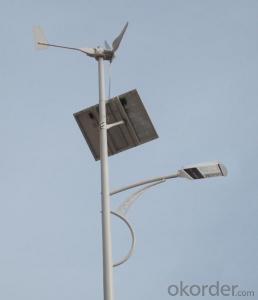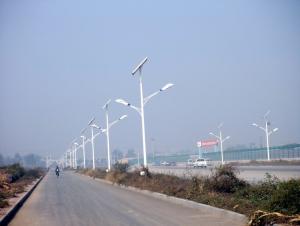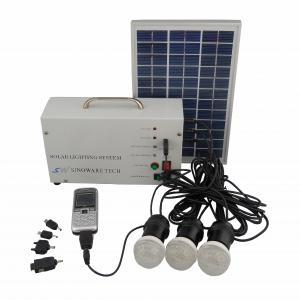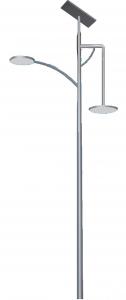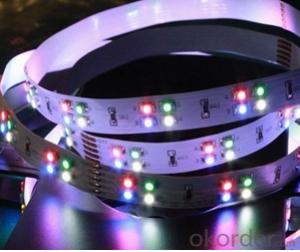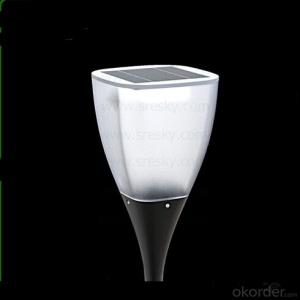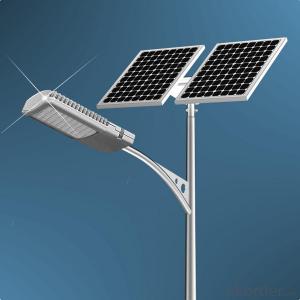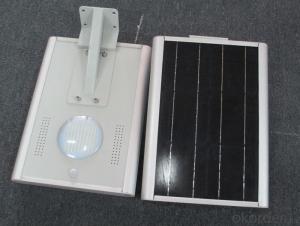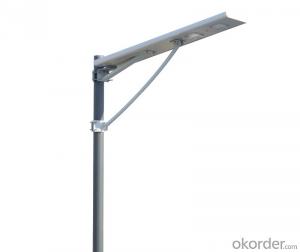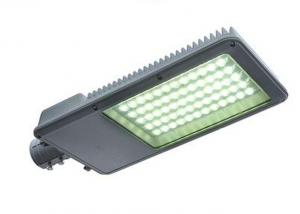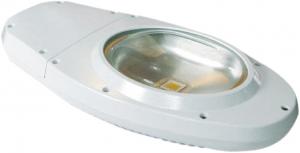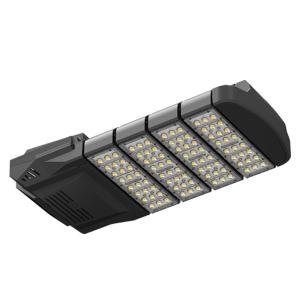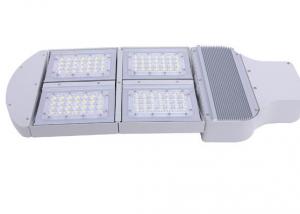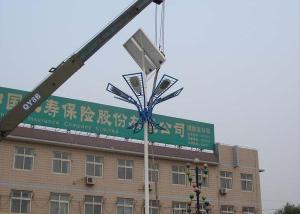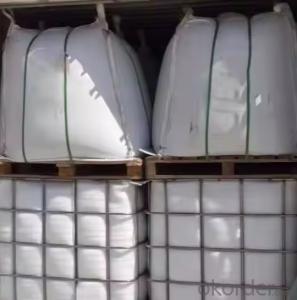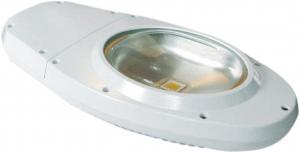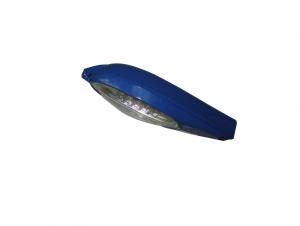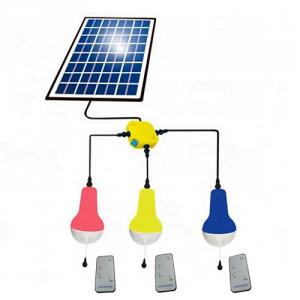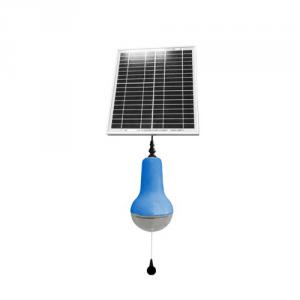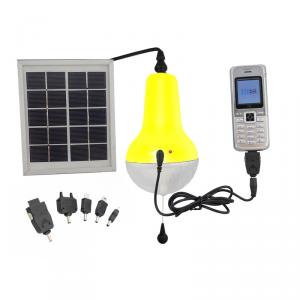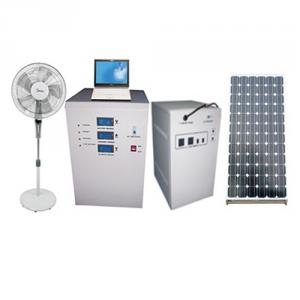Wind-Solar Hybrid Street Lights JMTF-001
- Loading Port:
- Shanghai
- Payment Terms:
- TT OR LC
- Min Order Qty:
- 10 pc
- Supply Capability:
- 10000 pc/month
OKorder Service Pledge
Quality Product, Order Online Tracking, Timely Delivery
OKorder Financial Service
Credit Rating, Credit Services, Credit Purchasing
You Might Also Like
| No. | Part | Description | lifetime | Guarantee |
| 1 | Lamp | 30-60W, imported LED chip 140-150lm/w, 4000-5500K. ( with invention patent) | 100,000hrs | 5years |
| 2 | Wind power generator | 1.2 grade wind can start the wind generator | 15years | 2years |
| 2 | Controller | digital programmable intelligent controller, switch on/off by light | 5years | 2years |
| 3 | Solar Panel | monocrystalline silicon or polycrystalline silicono(ptional), high conversion efficiency | 20years | 5years |
| 4 | Battery | High quality top brand maintenance-free solar storage gel or lead-acid battery, over charge and over discharge protection. | 8years | 3years |
| 5 | Pole | 4-12m high, zinc-plated steel, color optional | 20years | 10years |
| 6 | Accessories | Panel bracket, base anchor bolts, battery box, cables, fasteners etc. | 10years | 3years |
Remark:
| 1. work temperature: -30°C~+65°C. |
| 2. wind resistance:≥150km/h. |
| 3. protection grade: IP 65. |
- Q:How do solar lights handle power surges?
- Solar lights are usually equipped with circuitry that serves to safeguard them against power surges. In the event of a power surge, the circuitry promptly detects the abrupt rise in voltage and functions as a buffer to shield the light's internal components from harm. This circuitry encompasses surge protectors, voltage regulators, and various other protective mechanisms. Furthermore, solar lights commonly feature an incorporated battery or capacitor, which aids in stabilizing the power supply and absorbing any surplus energy during a power surge. This ensures that the solar light remains operational and effectively avoids any potential damage.
- Q:Can solar lights be used for outdoor sports fields?
- Yes, solar lights can be used for outdoor sports fields. They are a popular and sustainable option for illuminating sports fields at night, as they do not require external power sources and can be easily installed. Solar lights provide sufficient lighting for various outdoor sports activities, ensuring safety and visibility for players and spectators alike.
- Q:Can solar lights be used for indoor plants?
- Yes, solar lights can be used for indoor plants. However, they may not be as effective as traditional grow lights specifically designed for indoor plant cultivation. Solar lights rely on sunlight to recharge their batteries, so they may not provide sufficient light intensity or the right spectrum of light required for optimal plant growth. It is recommended to use grow lights specifically designed for indoor plants to ensure their healthy development.
- Q:Can solar lights be used for lighting up outdoor pools or water features?
- Yes, solar lights can be used to illuminate outdoor pools or water features. Solar lights are designed to harness and store solar energy during the day, which can then be used to power the lights at night. They are a cost-effective and eco-friendly option for adding lighting to outdoor areas, including pools and water features.
- Q:Can solar lights be used for pathway markers?
- Yes, solar lights can be used for pathway markers. They are a popular and eco-friendly choice for illuminating pathways, walkways, and driveways as they charge during the day using sunlight and automatically turn on at night. Solar lights provide a cost-effective and hassle-free solution for marking pathways, enhancing safety, and adding aesthetic appeal to outdoor spaces.
- Q:How do you store solar lights during the winter?
- During the winter, it is important to store solar lights in a dry and sheltered place to protect them from harsh weather conditions. It is advisable to remove the batteries from the lights to prevent any potential damage or leakage. Additionally, storing them in a cool and dark area will help prolong their lifespan and ensure they are ready for use when spring arrives.
- Q:How do solar lights automatically turn on and off?
- Solar lights are equipped with a built-in mechanism that enables them to automatically switch on and off based on the surrounding light conditions. This mechanism, referred to as a light sensor or photocell, plays a crucial role in their operation. During daylight hours, the solar panel on the light absorbs sunlight and converts it into electrical energy. This energy is then stored in a rechargeable battery, typically located inside the light fixture. Simultaneously, the light sensor detects the presence of natural light. As evening approaches and the natural light begins to fade, the light sensor detects this change and triggers the light to activate. The stored electrical energy from the battery is utilized to power the LED bulbs within the light, effectively illuminating the surrounding area. Conversely, as the sun rises in the morning, the light sensor detects the increase in daylight and instructs the light to switch off. This action helps preserve the stored energy in the battery for use during the subsequent evening. In essence, solar lights effortlessly switch on and off by utilizing a light sensor that detects variations in natural light conditions. This efficient system allows them to effectively harness solar energy throughout the day and provide illumination as needed during the night.
- Q:Are there any disadvantages of using solar lights?
- Yes, there are a few disadvantages of using solar lights. First, they rely on sunlight to charge, so they may not work efficiently in areas with limited sunlight or during cloudy days. Second, the initial cost of purchasing solar lights is usually higher compared to traditional lights. Third, solar lights typically provide softer and dimmer illumination compared to traditional lights, which may not be ideal for certain applications. Lastly, solar lights require regular maintenance and cleaning to ensure optimal performance.
- Q:Can solar lights be used for outdoor dining areas or restaurants?
- Yes, solar lights can be used for outdoor dining areas or restaurants. Solar lights are a great eco-friendly option for illuminating outdoor spaces, including dining areas. They can provide ambient lighting, enhance the atmosphere, and create a warm and inviting ambiance for customers. Additionally, solar lights are easy to install, cost-effective, and require minimal maintenance, making them an ideal choice for outdoor dining areas or restaurants.
- Q:Do solar lights have a built-in battery indicator?
- Yes, some solar lights do have a built-in battery indicator. This feature allows users to easily monitor the battery level of their solar lights and take necessary steps to ensure proper charging and usage. However, it's important to note that not all solar lights have this feature, so it's recommended to check the product specifications or user manual to determine if a particular model includes a battery indicator.
1. Manufacturer Overview |
|
|---|---|
| Location | |
| Year Established | |
| Annual Output Value | |
| Main Markets | |
| Company Certifications | |
2. Manufacturer Certificates |
|
|---|---|
| a) Certification Name | |
| Range | |
| Reference | |
| Validity Period | |
3. Manufacturer Capability |
|
|---|---|
| a)Trade Capacity | |
| Nearest Port | |
| Export Percentage | |
| No.of Employees in Trade Department | |
| Language Spoken: | |
| b)Factory Information | |
| Factory Size: | |
| No. of Production Lines | |
| Contract Manufacturing | |
| Product Price Range | |
Send your message to us
Wind-Solar Hybrid Street Lights JMTF-001
- Loading Port:
- Shanghai
- Payment Terms:
- TT OR LC
- Min Order Qty:
- 10 pc
- Supply Capability:
- 10000 pc/month
OKorder Service Pledge
Quality Product, Order Online Tracking, Timely Delivery
OKorder Financial Service
Credit Rating, Credit Services, Credit Purchasing
Similar products
New products
Hot products
Hot Searches
Related keywords
